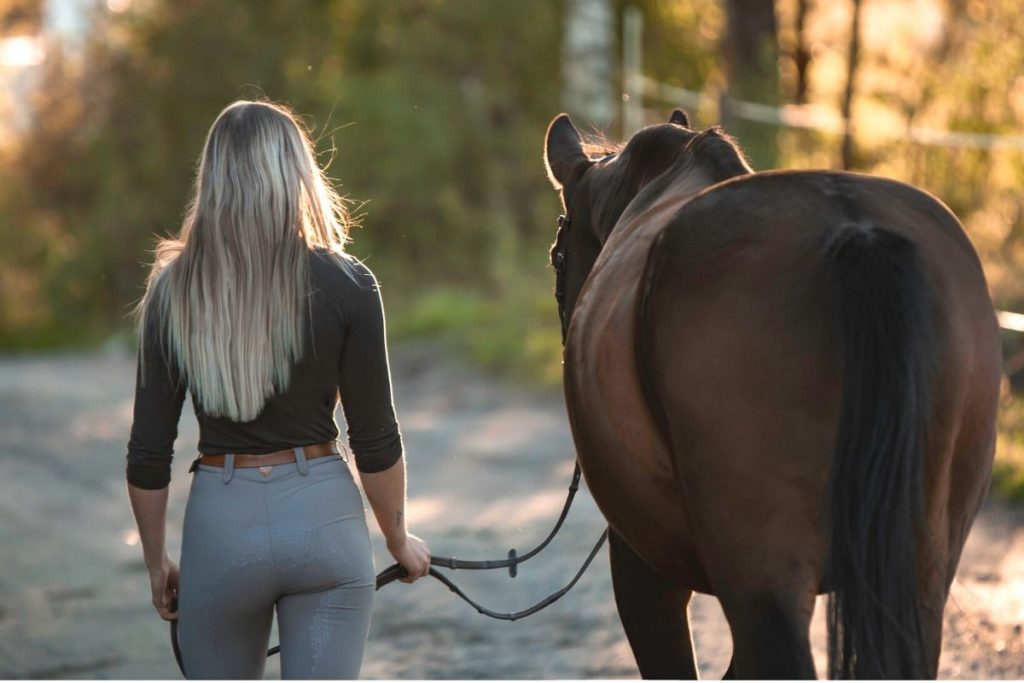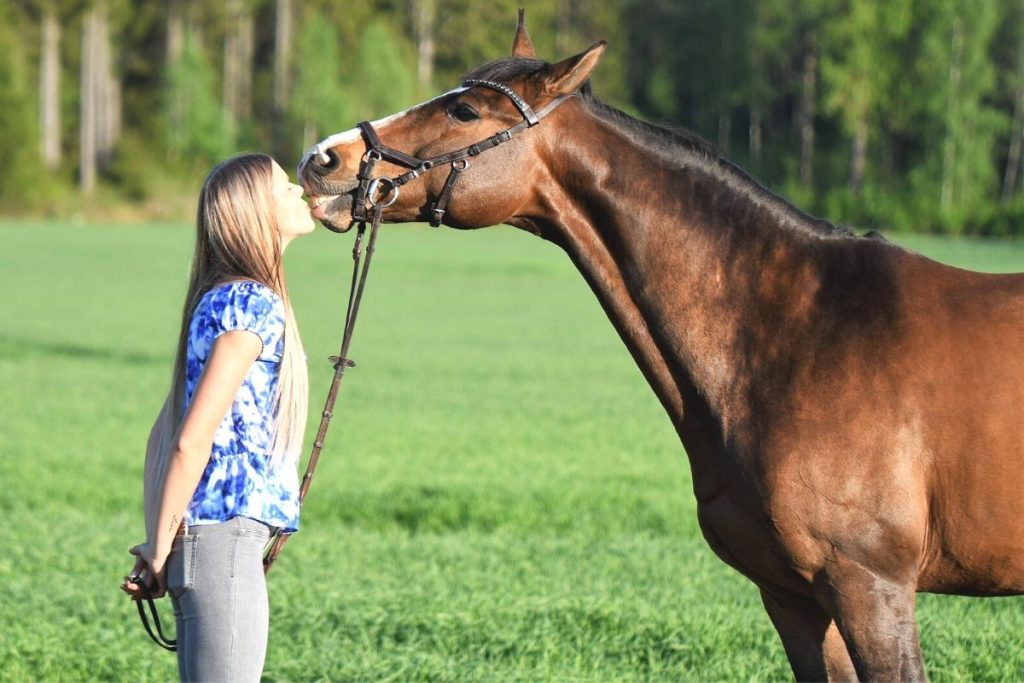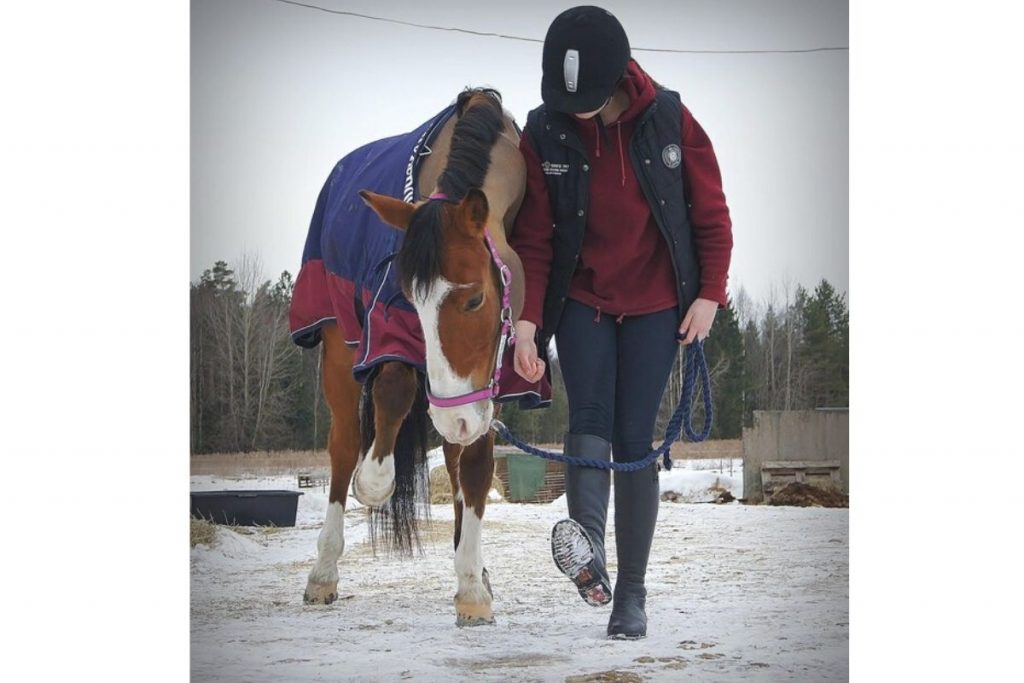You have experience training horses. In fact, you think you’re quite good at it. But for some reason, you can’t seem to train a specific horse in your barn. You’ve tried all the tricks in the book, and nothing seems to work. Should you throw in the towel?
Can all horses be trained? Every horse is different. While one may be easy to train, it may take ages for another to get the tricks down. However, only a small percentage of horses cannot be trained. Some of the things that affect horse training include:
- Health of the horse
- Pairing with the wrong rider
- Age
- Inherent emotionality
- Extremely long training sessions
- Improper reinforcement schedule
If you’re a beginner, it can be even more challenging to train a horse. For this reason, you need to know how to go about it and arm yourself with a few tips and tricks to make the process easier. In this article, we’re going to look at some of the reasons why some horses are harder to train than others. We’ll also share some tips on how to train a horse to improve your chances of success.

Can All Horses Be Trained?
Horses are like humans when it comes to learning. Some are fast learners, and others take a bit more time to master basic skills. For one horse, you may only take a few days of training before you’re confident to take them out on the trail. For others, it may take months.
According to Charles Wilhelm, an experienced horse trainer, horse training effectiveness can be affected by several factors. These include:
- Health of the horse: A horse with a mental or physical impairment that interferes with learning can be almost impossible to train either because it’s difficult for the horse to retain the skills taught or it’s physically impossible for them to engage in strenuous physical training.
- Pairing with the wrong rider: Horses are more drawn to confident riders and are more likely to retain what they’re trained to do if they’re paired with the right rider. Charles Wilhelm suggests pairing the “difficult horse” with several trainers to see if the training improves.
- Age: According to Horses Extension, the age of your horse can also be a hindrance to training. Older horses, according to this website, have a decreased learning performance because they’ve learned to ignore the type of stimulus used in learning.
- Inherent emotionality: All horses are different. While some are capable of remaining calm in stressful situations, some horses cannot handle the pressure. You’re in a better position to deal with a horse’s emotions if you start early handling. However, a good trainer is capable of reading their horse’s emotions and knows how to adjust the training accordingly.
- Extremely long training sessions: Horses retain lessons better if they’re taught in short durations. Instead of having long training sessions a few times a week, consider shorter durations every day of the week.
- Improper reinforcement schedule: According to Horses Extension, horses work harder and have a higher response rate when the reinforcement schedules are not done on a predictable schedule. You can make your training sessions less predictable by doing it at different times on different days.
As you can see, more often than not, the problem is how you approach the training and not the horse. Therefore, it suffices to say that if your horse is in perfect physical, mental, and emotional state, it’s trainable.
Tips on How to Train a Horse

Horse training is fun if you’re doing the right thing. It’s so fulfilling to see your horse do something you taught them. But if you’re not doing the right thing, it can be a real pain. You’ll try everything you can, and the horse won’t get it right. The result will be a lot of frustration for you and the animal.
Fortunately, there are several things you can do to make your training a success. These include:
First Things First, Build Trust
You wouldn’t jump into potty training a dog or baby you have no relationship with. Similarly, you shouldn’t start training a horse until you’ve earned their trust, and you’re certain they’re comfortable being in your presence.
There are several things you can do to get your horse to get to know you. You can massage, groom, or take a walk with the horse a couple of times in a week. Once you’re certain you’ve built trust, you can give training a try.
Have a Plan
According to Horsefullness Training, another reason why people have a hard time training horses is the fact that they don’t know what they want to achieve from the training. Some horse owners have vague reasons for training like, “to be better riders” or “to be able to ride the horse to town.”
If you want your horse training sessions to be a success, you need to have clear goals. For instance, if you want to ride your horse on day trips, a perfect training plan would include:
- Basic dressage training to teach the horse how to carry you with ease
- A training session to get the horse used to traffic
- A session on trailer loading in case you need to drive the horse to your riding destination
With this kind of plan, you’ll know which areas of your training to focus on. Not to mention, you’ll be in a better position to know when the horse is ready to put their skills to the test. Without a plan, chances are you’ll take the horse out when they’re not ready, which can be risky for you if you intend to ride the horse.
Check Your Emotions

Horses are very intuitive. They can pick up on your emotions and react to them. When you’re having a bad day, or you’re angry, your horse can tell, and it will make them very uneasy. This isn’t the best time to try training the horse.
Passionate Horsemanship suggests trying to relax and taking deep breaths to get over what you’re going through. According to them, doing this in the horse’s presence makes them come down and be receptive to the training.
Take It Slow
The other thing that can make or break your training sessions is how fast you’re training. You cannot expect your horse to master numerous skills at once. The trick is to teach them one thing at a time. Once they’ve mastered one trick, continue requiring them to do it a few times until you’re certain they’ve got it. At this point, you can move to another trick.
Consistency Is Key
Finally, to train your horse successfully, you have to take your place as the leader. However, this doesn’t mean that you should instill fear. It only means you should act in a manner that would earn your horse’s respect.
You can achieve this by being consistent in your training. For example, if your horse rushes through the gate and you tell them to stand there and not rush through that gate on day one, you can’t allow them to run through the next day. Consistency is what will make the skills stick.
Time to Teach Your Horse Some New Tricks
Horse training takes a lot of patience and practice. Therefore, do not give up the minute you face a slight challenge and conclude that your horse cannot be trained. If you’ve evaluated their physical, mental, and emotional health and the horse is okay, it may be time to change your training strategies.
